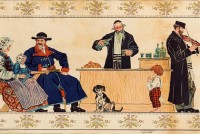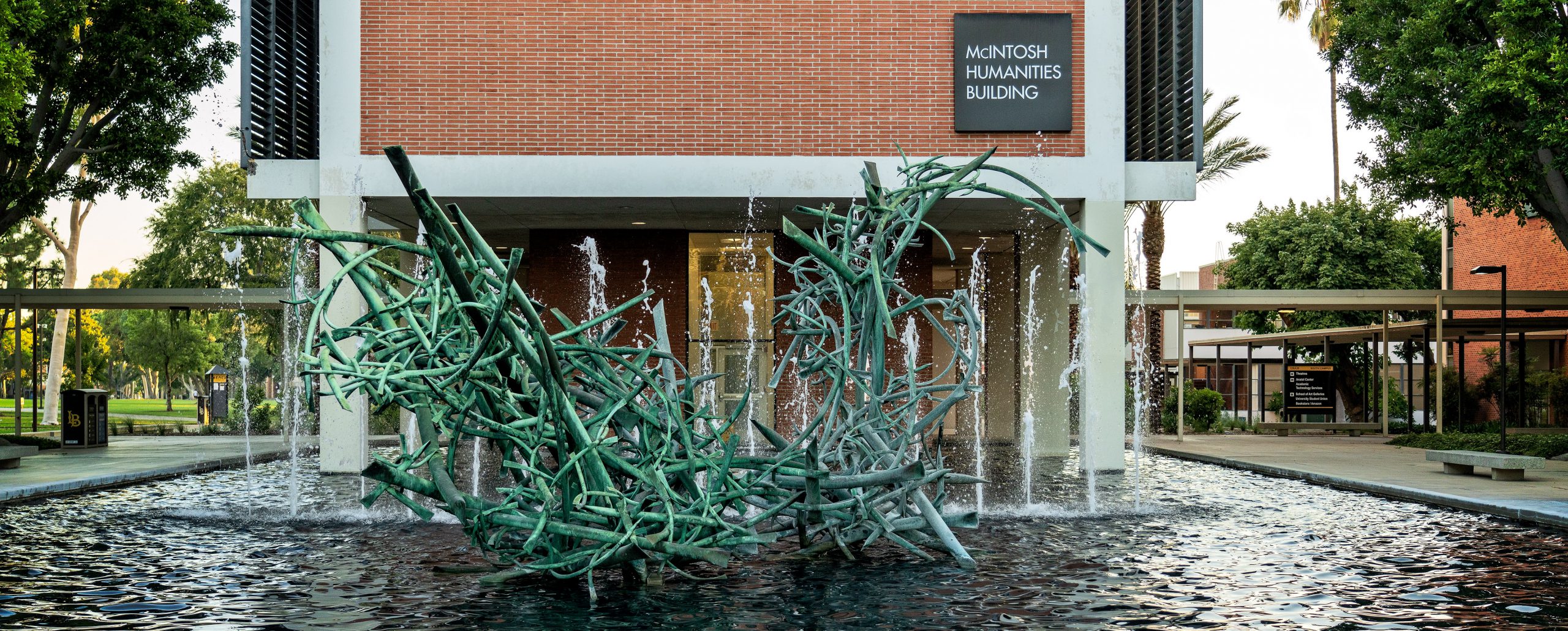Jews and Booze: Jewish Tavern Keepers in Eastern Europe
March 2, 2015
Detail of lithograph of gentiles in a Jewish tavern, by G. Pillati, published by A. Chlebowski, “Swit,” and printed by B. Wierzbicki and Sons, Warsaw. (Moldovan Family Collection via YIVO Encyclopedia)
Dr. Glenn Dynner, author of “Yankel’s Tavern: Jews, Liquor, and Life in the Kingdom of Poland” is one of the Jewish Department’s featured Spring 2015 speakers. Join him on Tuesday, March 24th, at 7:30pm at the Alpert Jewish Community Center for an enlightening evening about the little-known relationship between Jews and booze.
According to Tablet, an online Jewish magazine:
Dr. Glenn Dynner, an expert in Eastern European Jewry who is currently a scholar in residence at the Center for Jewish History, wrote in his recent study of the topic, Yankel’s Tavern, being a tavern-keeper and bartender was about as good as it got for Jews in Poland. He describes it as the era’s equivalent of accounting: an aspirational middle-class occupation, something to which they could apply their skills with a potentially lucrative payoff. As Dynner notes: “They leased taverns because there were not many alternatives for East European Jews.”
And Polish nobles were eager to have Jews run their taverns, largely because of prevalent myths about Jews—chiefly, that they didn’t drink. Dynner provides abundant evidence of what he calls the “myth of Jewish sobriety.” The 19th-century Polish nobleman Antoni Ostrowski described Jews as “always sober,” adding “drunks are rare among Jews.” Indeed, Dynner writes, “Polish folk idioms mocked Jews for having so much much liquor at their disposal yet being so stupid as not to drink it themselves.”
